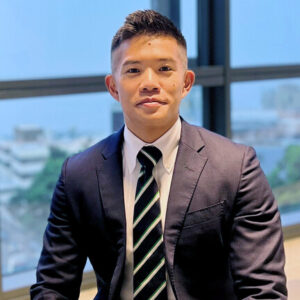 |
How did you start your affiliation with HKU Med?
I obtained my Bachelor’s, MPhil, and Ph.D. degrees from HKU Med, and I joined HKU Med in September 2017 as an assistant professor.
How would you describe your teaching style?
My teaching style is student-centred. I believe that it is important to view the student-teacher relationship as one that is co-created. As much as I hope that students will learn from me, I equally appreciate what I learn from my students. Part of this co-creation is student-centred teaching, which involves students as partners. Engaging students as my partners provides a space for us to work together to develop and enrich their learning and my teaching experiences. Moreover, working with students to improve curriculum and teaching strategies is important for enhancing students’ motivation towards an ownership of their learning. At the same time, this collaborative process can increase my understanding of students.
Are there any notable teachers who have influenced you?
My teaching style and philosophy are deeply influenced by my mentors, Dr Weng-yee Chin, Dr Julie Chen, and Dr Janice Tsang from HKU Med. They are very helpful, caring, and open-minded teachers and researchers with professionalism and passion. They took good care of me when I was a postgraduate research student. They not only imparted knowledge to me; they also greatly cared about my well-being and holistic development. They still give me guidance and unfading support when I encounter challenges in my career and personal life. They are my role model of an excellent teacher.
What do you like most when teaching in HKU Med?
I very much enjoy teaching at HKU Med. I genuinely appreciate the environment and resources HKU Med provides for its faculty. My knowledge about clinical education and pedagogy was very elementary when I first joined HKU Med as a teacher. I am so blessed that HKU Med offers a wide range of workshops and seminars about teaching and learning so that I can enhance and polish my pedagogy skills. Furthermore, colleagues at HKU Med are very helpful and passionate about teaching and research. They are highly willing to share their ideas and insights about teaching and learning strategies. I have been learning a lot from all of these training opportunities and the exemplary teachers I have encountered at HKU Med. Besides, I am so glad that I have different opportunities to teach in other professional programmes at HKU Med, such as MBBS and Master of Clinical Pharmacy, in addition to the nursing programmes. These valuable opportunities enrich my teaching experience and deepen my understanding of students who have different clinical backgrounds and educational needs.
What have been your greatest challenges in teaching?
I mainly teach research methodology and epidemiology in different nursing programmes. One of the greatest challenges of teaching research methodology and epidemiology is finding engaging ways for students to study theoretical concepts and relate them to their clinical practice. In some courses, I have been adopting journal-based learning. In brief, students learn about a topic through their critical appraisal of academic journal articles and discussion of research findings and their clinical implications. The aim of adopting journal-based learning in these courses is to allow my students to develop the skills necessary for understanding research publications as well as identifying and critically appraising research findings. This teaching approach capacitates my students to understand how nursing research shapes and informs good clinical practice and to evaluate the trustworthiness of evidence. These skills are particularly important for undergraduate nursing students, who often think research is not relevant to them. Furthermore, students’ familiarity with and proficiency in reading research methodologies is crucial for professional development in the nursing profession in which they need to maintain and update their nursing skills and knowledge.
|
